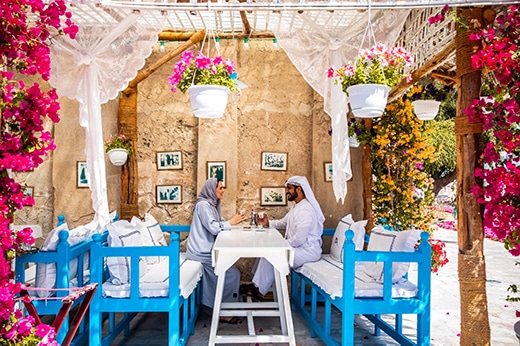Ramadan is a special month that holds immense significance for over a billion Muslims worldwide. The month is marked by various customs and practices, but the focus on spirituality remains the same. It is considered the most sacred month of the year for Muslims, as it is believed that the Quran was revealed to Prophet Mohammad (PBUH) on the night of Laylat Al Qadr, one of the last ten nights of Ramadan.
Living in Dubai has its own unique charm, with the city’s modern appeal and traditional values coexisting harmoniously. However, the city takes on an even more special significance during Ramadan, as people come together to celebrate the spirit of giving. This annual observance is considered one of the ‘Five Pillars of Islam’ and serves as a time for Muslims to strengthen their faith and connect with their community.
Dubai is a diverse city with a large expat population, and the government and local communities go to great lengths to ensure that non-Muslims feel included and respected during the holy month of Ramadan. Some of the ways in which Dubai celebrates Ramadan for its expats include hosting cultural events featuring food, clothing, and traditional arts and crafts; offering special promotions and discounts at shopping malls and restaurants. Additionally, many hotels and resorts offer private dining areas for non-fasting guests, and some restaurants operate normally during the day, while closing only during the evening hours when Muslims break their fast. These efforts reflect Dubai’s commitment to promoting inclusivity and cultural exchange, and make the city a welcoming and enriching place to experience the spirit of Ramadan.
Dubai’s food culture has become a reflection of its cosmopolitan population, with a diverse range of international cuisines available throughout the city. The presence of expat communities has played a significant role in shaping Dubai’s food scene, with various cultures contributing to its gastronomic offerings.
During the holy month of Ramadan, Dubai’s food culture takes on a special significance, with both locals and expats coming together to break their fast at sunset. The pre-dawn meal, known as Sehri, is an essential part of the fasting ritual, and many hotels and restaurants offer special menus during this time. Sehri meals typically consist of traditional Arabic dishes such as Foul, a dish made with fava beans, and Balaleet, a sweet vermicelli dish. Other popular dishes include Shakshuka, a spicy tomato and egg dish, and Manakish, a Lebanese flatbread topped with cheese, za’atar or minced meat.
Iftar, the evening meal that breaks the fast, is a grand affair in Dubai, with many restaurants and hotels offering lavish buffets and set menus. Arabic staples such as dates and laban (yogurt drink) are served to break the fast, followed by an array of soups, appetizers, and main courses. Some of the must-try dishes during Iftar in Dubai include Samosas, Kebabs, Shawarmas, and Fatayer, a pastry filled with meat or cheese.
In addition to traditional Arabic dishes, Dubai’s food culture during Ramadan also features international cuisine, reflecting the city’s diverse population. From Indian curries and Pakistani biryanis to Filipino adobo and Indonesian rendang, there’s something for everyone during Ramadan in Dubai.
Dubai’s Ramadan tents are a popular feature during the holy month, providing air-conditioned spaces for people to gather and break their fast together. These tents are typically decorated in traditional Arabic style and serve a range of food and beverages, from classic Middle Eastern dishes to global cuisines.
Another unique aspect of Ramadan in Dubai is the city’s lighting displays. Many of the city’s landmarks, including the Dubai Frame, Burj Khalifa, and Ain Dubai, are illuminated with special Ramadan-themed lighting installations, creating a festive and magical atmosphere. There are also daily light shows at Festival Bay in Dubai Festival City Mall and building projections at Al Seef and Al Habai Mosque.
Ramadan markets are also a feature of Dubai’s celebrations, offering a range of products such as food, clothing, home decor, and gifts. The Ramadan at Oasis market and Al Barsha Park Ramadan Market are two of the most popular markets, running for several weeks during the month.
Ramadan is also a time for spiritual reflection and charity. In Dubai, many individuals and organizations donate to charitable causes, such as feeding the poor and providing aid to those in need. The Dubai Police also participate in the Ramadan spirit by sounding the Iftar cannon at various locations across the city.
Ramadan in Dubai is a unique time of year when residents and visitors come together to create memorable and meaningful experiences as the city takes on a distinctly different persona and transforms with an extra special spirit and ambiance of togetherness. All these exciting events and activities, exquisite gastronomy, and world-class entertainment, make Ramadan in Dubai a month to remember, so if you’re looking to travel somewhere during Ramadan, Dubai is where you need to be!
Written by: Aleem Durrani


